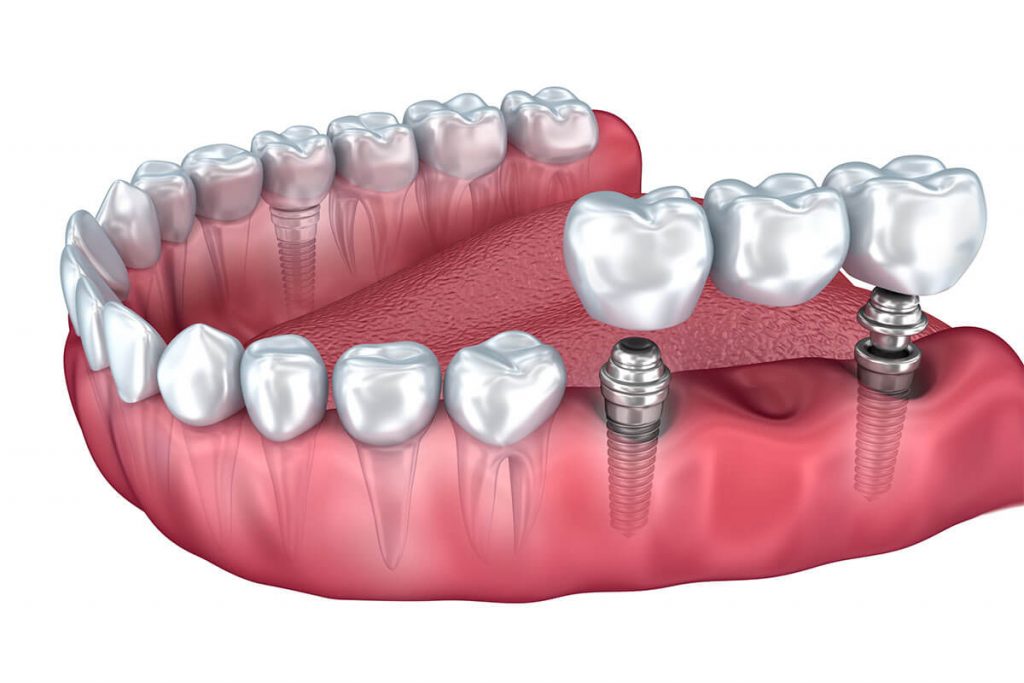A dental crown is employed to safeguard a tooth that has fractured or suffered extensive decay or filling. Additionally, crowns are utilised to enhance teeth subjected to significant wear and tear, whether due to erosion or grinding. They also serve to shield teeth following root canal treatment, provide support for a partial denture, or restore dental implants. Furthermore, a crown can be affixed to a dental implant.
There exist three fundamental types of dental crowns: porcelain, porcelain bonded to metal, and porcelain/Zirconium. Crafted to emulate the feel and appearance of natural teeth, these crowns offer a seamless blend with existing dentition. With proper oral hygiene and regular maintenance, crowns furnish a robust long-term solution.

Dental bridges serve as an effective solution for replacing one or more missing teeth. They are securely affixed to the remaining natural teeth adjacent to the gap, thus restoring both the aesthetics and functionality of the missing teeth. Nowadays, bridges come in all-ceramic variants, ensuring a superior appearance akin to natural teeth.
The installation of dental bridges typically involves the reduction of neighbouring teeth to accommodate the materials used in constructing the bridge.
- Conventional bridges: A secure and enduring option. These bridges are anchored onto neighbouring teeth or implants and are not removable.
- Resin bonded bridges or Maryland bonded bridges: Particularly suitable for replacing a single missing tooth. Essentially, these are adhesive bridges bonded to natural teeth, requiring minimal tooth preparation.
- Cantilever bridges: Designed for single tooth replacement, these bridges are affixed to one adjacent tooth.
- Removable bridges: A hybrid denture bridge that remains in place through friction or precision attachment.
- Implant-supported bridges: These bridges are fixed onto existing dental implants either by screwing or cementing them in place. Once installed, the implants serve as a stable foundation, ensuring long-term support for bridges or dentures.

A Prosthodontist, a specialist dentist, specialises in replacing missing teeth and associated soft and hard tissues using prostheses like crowns, bridges, and dentures. These prostheses can be fixed or removable, and may be supported and retained by implants.
At our practice, we provide a range of solutions including fixed prosthodontics, removable prosthodontics, and implant prosthodontics.
